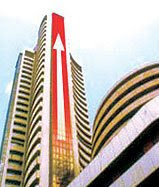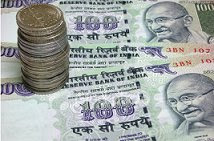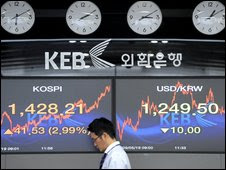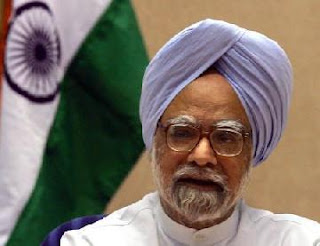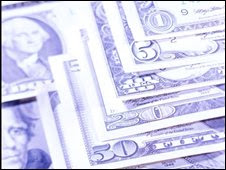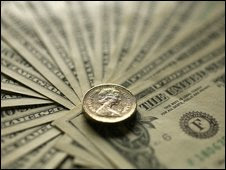
Sterling has fallen back against the dollar after the US currency rallied in early trade and a Bank of England policymaker warned of "false dawns".
The pound capped a rise in recent weeks by hitting $1.60 on Wednesday for the first time since November last year.
But it fell to $1.5925 on Thursday as investors took profits and the dollar rose against a range of currencies.
The Bank of England's David Blanchflower warned that the worst of the global crisis may not be over.
"My worry is that there can be many false dawns and we shouldn't assume that everything is over," he said in an interview with the Times newspaper.
Retail sales down
Separately, a survey by the CBI provided more gloomy news on the UK economy.
The CBI's distributive trends survey said that UK retail sales had fallen by more than expected in May and that retailers were expecting a further deterioration next month.
But analysts expect the pound to remain strong as it rebounds from the 23-year low of $1.3620 against the dollar in January.
"The bullish momentum is stronger than it has been since December 2006," said Nicole Elliott of Mizuho Corporate Bank.
An early rally by the dollar also saw it strengthen against the euro. One euro dropped to $1.3867 from $1.3965 on Wednesday.

